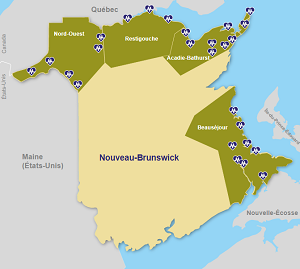Infant formula
Various factors may lead a family to opt for infant formula. If you are considering using formula, here is some information you will need to make an informed decision.
Importance of breastfeeding to babies
- Breastmilk is easily digested and it changes to meet your baby’s needs.
- It promotes the growth and development of your baby’s brain.
- It provides a certain level of protection against ear and lung infections.
- It reduces the risk of sudden infant death syndrome (SIDS).
- It helps your baby develop healthy eating habits.
- It protects against certain diseases later in life.
Importance of breastfeeding to parents and families
- Breastfeeding reduces the risk of breast cancer, ovarian cancer and type 2 diabetes in the person who breastfeeds.
- Breastfeeding releases hormones that can help improve mood and reduce anxiety in the person who breastfeeds.
- It helps save money, which in turn helps improve the entire family’s food security.
- It’s available whenever needed – with nothing to clean or prepare – and involves no concerns about shortages or product recalls.
- It’s the most easily available and safest feeding method in emergency situations such as power outages, storms and illnesses.
Importance of breastfeeding to communities
- Breastfeeding is good for the environment because it generates no waste.
- It reduces the cost of health care and improves the community’s health.
To make an informed decision, it’s important for parents to be aware of the risks associated with infant formula, which include the following:
- Not breastfeeding is associated with an increased risk of diarrhea, ear infections, lung infections, obesity, diabetes and sudden infant death syndrome (SIDS).
-
Giving formula to a breastfed baby can:
- Change the baby’s intestinal flora and undermine their ability to breastfeed effectively;
- Reduce breast milk production and cause breastfeeding to end earlier than planned;
- Deactivate certain protective factors in human milk.
- There are risks associated with the production of infant formula, such as shortages, production errors, industrial contamination and preparation errors.
- In emergency situations, the risks associated with using infant formula increase when hygiene conditions deteriorate.
- On average, infant formula costs between $2000 and $3000 the first year.
It’s crucial to ask yourself whether your feeding plan is acceptable, feasible, affordable, sustainable and safe for your situation.
Talk to a health professional about all your options.
It’s difficult to change course once you decide not to breastfeed; if breastfeeding is not started or is interrupted, milk production will diminish and stop.
If you have to use infant formula or have made an informed decision to feed your baby this way, the following resources can help you prepare to use formula safely:

